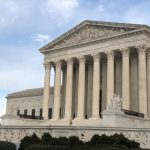In the Southern U.S., August is known as the hottest month of the year. People start complaining about the dog days of summer since the temperatures get extremely hot from June to July. The Federal Reserve is in the same boat as the public when it comes to the interest rate hikes. If the rate hikes are not completed by the end of the year, then we are in for another spike in rates.
Federal Reserve Chair Jerome Powell and other officials have frequently stated that they think that it is better to endure higher temperatures than it is to endure oppressive humidity in August.
When inflation was first brought to the attention of the public, it was initially regarded as a temporary issue. However, it has since become a major concern for the Federal Reserve. Despite claims that inflation is starting to subside, it is still in a cycle of rising prices that has yet to be resolved.
Ummmm…
When Biden’s biggest economic issue is that he can’t get inflation to drop faster because the jobs market is RED HOT and people have too much spending money?
I think it’s hard to buy your spin. https://t.co/JIYibgtz1l
— Tom Santos (@tommysantos14) July 6, 2023
One of the most frequently asked questions about the Fed's interest rate policy is how long it will continue to maintain these rates. According to analysts at Goldman Sachs, the central bank might end up reducing its interest rates by around the middle of 2024. They noted that a recession might prompt the Fed to take additional measures, but they still think that the funds rate will eventually stabilize at around three percent.
Many economists believed that the Fed would begin reducing its interest rates in 2023 if the economy were to go into a recession. But, since the country isn't in one yet, this situation has reminded us that such actions can also follow a pattern.
The Fed only makes changes to its monetary policy once it is confident that inflation has started to subside. In addition, it's important to note that it doesn't want to increase the demand for goods and services resulting from looser policies.
In February 2021, Powell and the Fed missed the signs of an increase in inflation. They kept on fueling the economy by promoting more spending even before the "Inflation Reduction Act" was passed. The Wall Street Journal warned that the government's continued use of spending bills could lead to higher prices.
That said, their predictions were correct as the US eventually suffered from an inflation crisis. It took the central bank a year to address the issue.
The Fed deserves some credit for maintaining a steady increase in interest rates in order to combat the rising prices. Unfortunately, despite the actions of the central bank, the President and Congress have not been able to prevent the inflation from happening. Under the leadership of Jerome Powell, the Fed has been able to raise its rates by a record amount. Meanwhile, the Democrats and Biden have been spending heavily on government programs.
The Fed's stance on interest rates now turns to how long it will remain in this "August" phase. According to Goldman Sachs, the high interest rates will cause the corporate debt market to become strained. This could lead to companies having to restructure their debts or refinance them.
Despite the various factors that have affected the stock market and the economy, Goldman Sachs still believes that the Fed will start reducing its interest rates once the country is in a recession. This is a fair assumption, given the central bank's track record. However, it should be noted that this assumption is only an assumption.
The Fed's actions have been going on longer than expected. If the central bank continues to increase its rates, it might end up causing the unemployment rate to rise and triggering higher interest rates during an economic decline.
Despite the various factors that have affected the US economy, it has still managed to remain resilient. Economists expect that inflation will continue to rise due to the rising prices of food and gasoline. This should serve as a warning to the Fed that it's still not finished with its job.
It's widely expected that the Fed will continue increasing its rates well beyond the summer season. Unless the US begins to experience a recession, it's likely that the interest rate increases will continue for a long time.
In these trying times, we should all remember to drink water and stay cool. Not only are we dealing with the effects of the summer heat, but we're also experiencing a hot economic climate.




